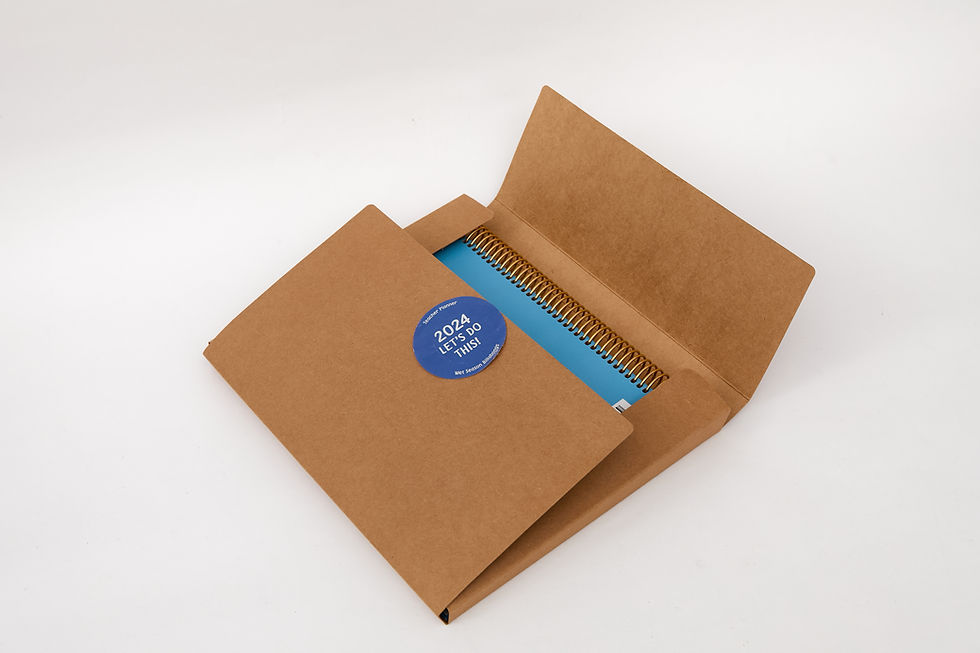What Every Notebook Buyer Must Know About CA Prop 65 and CPSIA
- Leo Xia

- Jun 22, 2025
- 4 min read
Quick Content Reach:
Why Compliance is No Longer Optional
Too many notebook brands have learned the hard way—products that don’t meet U.S. compliance standards like California Prop 65 and CPSIA can quickly lead to disaster. We're talking product recalls, sudden delistings from major retailers, or even legal actions that put your brand reputation at serious risk.
Imagine this: you’ve spent months developing a new notebook collection. You launch it in the U.S. market, only to receive a notice that your product contains regulated chemicals above allowable limits—or worse, it was flagged for missing a required warning label. Not only could you face thousands in fines, but angry customers and negative reviews could unravel the trust you've worked so hard to build.
That’s why compliance is no longer optional. It’s a foundational part of smart notebook sourcing and brand management. In this guide, I’ll walk you through what every buyer and stationery product manager needs to know about CA Prop 65 and CPSIA—and how Lion Paper Products ensures every product in your supply chain is verified, tested, and ready for confident distribution.

1. Understanding CA Prop 65: What It Covers
CA Prop 65 (California Proposition 65) is a chemical warning law enforced in California. It applies to all consumer products sold in the state—including notebooks, bags, and even packaging. If a product contains chemicals listed as carcinogenic or reproductive toxicants, businesses must provide a warning label.
Applicable to all age groups and product types
Over 850 listed chemicals, including lead, cadmium, formaldehyde, and some phthalates
Enforced by private lawsuits and state attorneys

2. Understanding CPSIA: Federal Requirements for Children's Products
CPSIA (Consumer Product Safety Improvement Act) is a U.S. federal law that governs safety requirements for children's products (intended for children under 12). If you're producing notebooks for school use, kids' journals, or licensed merchandise, this law likely applies.
Applies to products designed for children under 12
Requires third-party testing by a CPSC-accredited lab
Needs a Children's Product Certificate (CPC) and tracking labels
Regulates lead content, phthalates, and small parts

3. Key Substances You Must Watch For
Both regulations target hazardous chemicals. Here are the overlapping and distinct substances they regulate:
Lead: CA Prop 65: ≤300ppm for plastic parts; CPSIA: ≤90ppm for coatings, ≤100ppm for substrates
Phthalates: Seven are regulated under both laws (DEHP, DBP, BBP, DINP, DNOP, DIBP, DIDP)
Flame retardants, formaldehyde, cadmium: Covered under Prop 65; some under CPSIA via ASTM F963
4. Testing & Documentation: How Compliance Is Verified
Lion Paper ensures compliance through standardized processes:
Annual testing of core SKUs, including notebooks and pouches
Testing every new collection, including licensed and children's series
Third-party labs: SGS, Intertek, etc., all CPSC-certified
Maintaining CPC certificates and tracking labels
5. How Lion Paper Products Stays Ahead With CA Prop 65 and CPSIA
Factories in China and Cambodia regularly undergo audits and invest in updated equipment
Products pass both CPSIA and Prop 65 testing before shipment
Each quality inspector wears a bodycam to ensure accountability
In-house R&D team ensures early identification of risk materials
All client-exported items (to U.S./EU) go through batch testing, especially for notebooks targeting children
6. The Risks of Non-Compliance
Product recalls: Especially if children are affected
Fines: Up to tens of thousands per violation
Retail delisting: Major retailers may pull your products
Legal liability: Lawsuits under CA Prop 65 are often initiated by private entities
7. What Should Buyers Do?
Request CPC and Prop 65 documentation before placing large orders
Clarify intended use and target age group with the manufacturer
Prioritize suppliers with ISO9001, CPSIA, and Prop 65 test history
Ask for annual or batch testing reports for core SKUs

Conclusion: Your Compliance Strategy Starts Now
In 2025, CA Prop 65 and CPSIA aren’t just regulatory acronyms—they’re critical checkpoints for any notebook buyer entering the U.S. market. By working with an experienced manufacturer like Lion Paper Products, you gain more than just a supplier—you gain peace of mind.
Let’s build something compliant, sustainable, and trustworthy—together.
Contact Lion Paper Products today to review your compliance checklist and receive a free quote.
—Leo Xia, CEO, Lion Paper Products
FAQs:
Q1: What is CA Prop 65?
A: CA Prop 65 is a chemical warning law for products sold in California.
Q2: What is CPSIA?
A: CPSIA is a U.S. federal safety law for children’s products.
Q3: Do notebooks need testing?
A: If sold in the U.S., yes—especially if for children.
Q4: Does Lion Paper test its products?
A: Yes, annually and per project.
Q5: Can I request documentation before ordering?
A: Absolutely. We recommend it. Work with experienced suppliers like Lion Paper Products and track testing updates.
Are you looking for a reliable manufacturer? Reach out to Lion Paper for a free quote and consultation. Let’s collaborate on creating custom writing paper products that will set your brand apart from the competition.







Comments